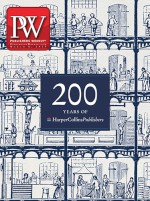For many people in the U.S., the phrase “Jewish cooking” calls to mind a specific kind of dish: “heavy, old-fashioned, and maybe not very good for one’s health,” says Kim Lim, assistant editor at Skyhorse. But while Eastern European staples such as stuffed cabbage and chopped liver still have a place at the table, she says, “it’s now an eclectic mix of global flavors.”
The Modern Jewish Table by Tracey Fine and Georgie Tarn (Skyhorse, Aug.) presents 100 Kosher recipes inspired by international cooking traditions—think Jewish empanadas and Chinese chicken sesame toast. The authors also twist the classics in dishes such as Sephardi chicken soup with fragrant matzo balls and vegetarian chopped liver.
In March, Blue Rider will publish Jack’s Wife Freda by Maya and Dean Jankelowitz, who co-own the two downtown Manhattan restaurants of the same name and who grew up with, respectively, Ashkenazi and Sephardic traditions. Julie Jaksic developed the recipe lineup, which includes shakshuka, a Middle Eastern egg and tomato dish; malva pudding, a South African dessert (malva is Afrikaans for marshmallow); and a traditional matzo ball soup.
“The range of foods and flavors has broadened in modern Jewish cooking,” says Sarah Hochman, editor-in-chief at Blue Rider and Plume. “A focus on ethnic and regional foods has supplanted what we used to think of as comfort food, and in some instances, as American cooking.”
Both editors cite the Ottolenghi effect—the publishing impact of Israeli-born British chef and restaurateur Yotam Ottolenghi, whose five cookbooks (two coauthored by Sami Tamimi, his business partner) have sold a combined 911,000 print copies, per NPD BookScan. Ottolenghi has also influenced London’s restaurant scene, with newer restaurants including the Palomar, a Michelin Bib Gourmand winner, feeding the appetite for Israeli-inflected dishes. In The Palomar Cookbook (Clarkson Potter, Mar.), Layo Paskin and Tomer Amedi, the restaurant’s creative director and chef, highlight the southern Spanish, North African, and Levantine inflections in what its subtitle calls modern Israeli cuisine.
Here are more cookbooks reflecting the culinary diversity of the Jewish diaspora:
Fress by Emma Spitzer (Mitchell Beazley, Apr.). Taking its name from the Yiddish word meaning “to eat without restraint,” this book by Spitzer, a finalist on the BBC cooking competition show MasterChef, includes recipes inspired by her international travels (slow-cooked Moroccan chutney) and family favorites (“Grandpa ‘Bugga’s’ Turkey Schnitzel”).
It’s Always About the Food by the Monday Morning Cooking Club (HarperCollins, May). A weekly gathering of six food-loving Jewish women in Sydney has spawned three cookbooks, including this latest, which celebrates global influences on Jewish cooking.
The Joys of Jewish Preserving by Emily Paster (Harvard Common, June). “Queen Esther’s Apricot-Poppyseed Jam” and lacto-fermented kosher dill pickles are among the 75 sweet and savory recipes.
King Solomon’s Table by Joan Nathan (Knopf, Apr.). James Beard Award–winner Nathan gathers recipes that span the ages and the globe: Syrian meatballs with cherries and tamarind; slow-cooked brisket with red wine, vinegar, and mustard. Alice Waters contributes the foreword.
Matzo by Michele Streit Heilbrun (Clarkson Potter, Mar.). Heilbrun, co-owner of Streit’s Matzos, founded by her great-grandfather in 1925 on Manhattan’s Lower East Side, shows 35 ways to cook year-round with the Passover staple. Dishes include matzo granola, caesar salad with matzo croutons, and matzo spanakopita.
The Modern Jewish Baker by Shannon Sarna (Countryman, Sept.). Starting with basic recipes for traditional baked goods, Sarna then encourages flights of fancy—tomato-basil challah, s’mores babka, and more.



 Volume 264
Issue 10
03/06/2017
Volume 264
Issue 10
03/06/2017





